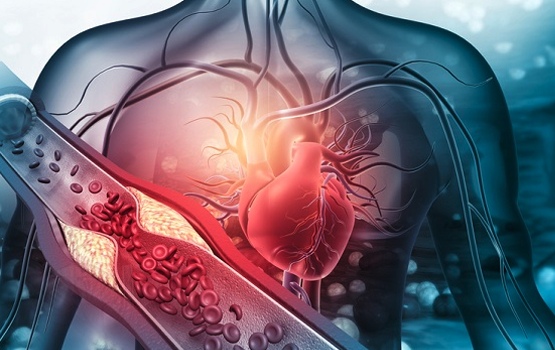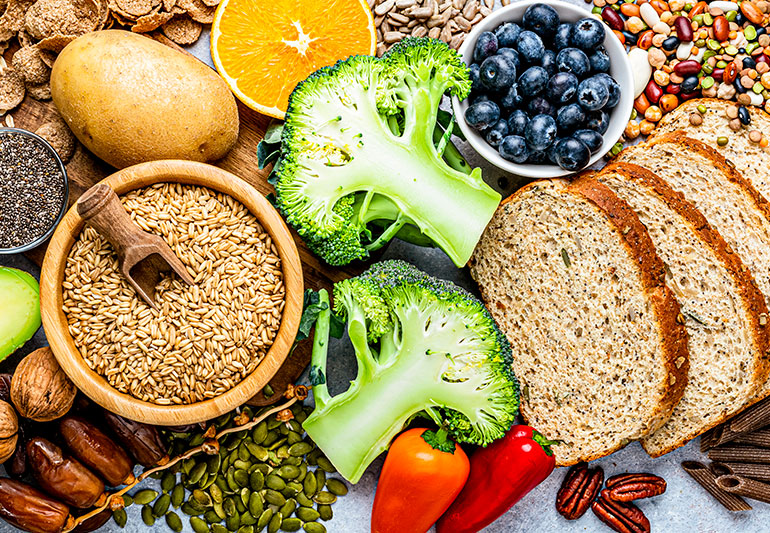
In today’s fast-paced world, maintaining optimal health has become more crucial than ever. One of the key factors in achieving a healthy lifestyle is managing your cholesterol levels.
High cholesterol levels can significantly increase the risk of heart disease and other cardiovascular problems.
However, the good news is that you have the power to control your cholesterol through simple yet effective lifestyle changes.
In this article, we will explore various strategies and habits you can adopt to control cholesterol and promote overall heart health.
Eat a Heart-Healthy Diet

The foundation of controlling cholesterol lies in adopting a balanced and heart-healthy diet. Focus on consuming foods that are low in saturated and trans fats, as these fats can raise your LDL (low-density lipoprotein) cholesterol levels – commonly known as “bad” cholesterol. Instead, incorporate more of the following into your diet:
- Fiber-rich Foods: Opt for whole grains, fruits, vegetables, legumes, and nuts. These foods are high in soluble fiber, which can help lower LDL cholesterol.
- Healthy Fats: Consume sources of healthy fats such as avocados, olive oil, and fatty fish like salmon. These fats, known as monounsaturated and polyunsaturated fats, can improve your overall cholesterol profile.
- Lean Proteins: Choose lean protein sources like skinless poultry, fish, and plant-based proteins such as beans and lentils.
Maintain a Healthy Weight
Being overweight or obese can contribute to high cholesterol levels. Shedding excess pounds through a combination of a balanced diet and regular physical activity can lead to improvements in your cholesterol profile.
Aim for a gradual and sustainable weight loss, as crash diets can negatively impact your health.
Stay Physically Active

Regular physical activity is a cornerstone of heart health and if you want to control cholesterol. Aim for at least 150 minutes of moderate-intensity aerobic exercise or 75 minutes of vigorous-intensity aerobic exercise per week.
Activities like brisk walking, jogging, swimming, and cycling can help raise HDL (high-density lipoprotein) cholesterol – the “good” cholesterol – while also improving overall cardiovascular fitness.
Limit Processed and Sugary Foods
Processed foods often contain unhealthy fats, excessive sugars, and refined carbohydrates, all of which can negatively affect your cholesterol levels. Minimize your intake of sugary snacks, baked goods, and sugary beverages. Instead, opt for whole, unprocessed foods whenever possible.
Control Portion Sizes
Portion control plays a vital role in managing cholesterol levels. Even healthy foods can contribute to weight gain if consumed in excessive amounts. Be mindful of portion sizes to avoid overeating and maintain a healthy weight.
Choose Plant-Based Options
Plant-based diets have been linked to lower cholesterol levels and a reduced risk of heart disease. Consider incorporating more plant-based meals into your diet by choosing options like beans, lentils, tofu, and a variety of colorful fruits and vegetables.
Quit Smoking


Smoking is not only harmful to your lungs, but it also adversely affects your cardiovascular health. Smoking can lower your HDL cholesterol levels and damage your blood vessels, increasing the risk of plaque buildup. Quitting smoking can lead to significant improvements in your overall health, including your cholesterol profile.
Limit Alcohol Intake
While moderate alcohol consumption may have some cardiovascular benefits, excessive drinking can lead to high triglyceride levels and contribute to weight gain. If you choose to drink, do so in moderation – up to one drink per day for women and up to two drinks per day for men.
Manage Stress
Chronic stress can impact your cholesterol levels and heart health. Practice stress-reduction techniques such as deep breathing, meditation, yoga, or spending time in nature. Finding healthy ways to cope with stress can contribute to improved cholesterol control.
Conclusion
Taking control of your cholesterol levels is a proactive step toward maintaining optimal heart health. By adopting a combination of a heart-healthy diet, regular physical activity, and other positive lifestyle changes, you can effectively manage your cholesterol and reduce your risk of heart disease. Remember that small, consistent efforts over time can lead to significant improvements in your overall well-being.
Consult with a healthcare professional before making major changes to your diet or exercise routine, especially if you have existing health conditions or are taking medication. Your heart will thank you for the investment in your long-term health.
What's Your Reaction?
One of my friends once said, I am in love with words and a zoned out poser... well, I will keep it the way it has been said! Besides that you can call me a compulsive poet, wanna-be painter and an amateur photographer





